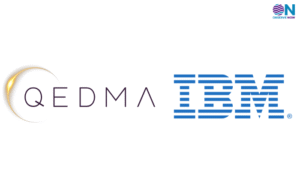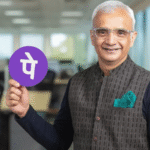Strategies to Combat Spam Calls reveals Arpit Tak, CEO, Naam with ObserveNow Media

The Indian startup ecosystem is witnessing a remarkable evolution from 2015-2022 with staggering growth and notable accomplishments, as per National Startup Report 2022. It illustrates a sevenfold increase in the number of incubators, a The Indian startup ecosystem is witnessing a remarkable evolution from 2015-2022 with staggering growth and notable accomplishments, as per National Startup Report 2022. It illustrates a sevenfold increase in the number of incubatoninefold increase in investors, and an impressive fifteenfold surge in total startup funding. The report underscores key indicators portraying India’s vibrant startup scene, with over 117,000 startups showcasing exponential entrepreneurial growth. Significantly, these startups are not confined to urban hubs; they extend their presence across 670+ districts, with half originating from Tier-2 and Tier-3 cities.
India, despite its rise as the world’s second-largest mobile market and its early adoption of 5G, grapples with persistent challenges. Spam calls, a ubiquitous nuisance, disrupt daily life, ranging from financial scams to unwanted marketing efforts. Siddharth Mala, Correspondent, ObserveNow Media discussed this issue with Arpit Tak, CEO, Naam, an Indian startup leading the fight against spam and scam calls.

Arpit Tak and Ramesh Chaudhary, the co-founders of Naam, blend extensive wealth of expertise and experience to Naam’s mission. Arpit, with an MBA from IIM Ahmedabad and over 12 years in Telecom, Ad-Tech, and AI, pairs with Ramesh’s strong background in Cyber Security and Telecom infrastructure. Together, they are dedicated to transforming India’s digital scene.
“In India, the prevalent spamming algorithm relies on the collective feedback of app users, marking certain numbers as spam based on a threshold,” Arpit elucidated during the conversation. “However, this approach fails to deter determined spammers, who can easily circumvent detection by swiftly changing mobile numbers” he further added.
Naam adopts a pioneering approach, eschewing reliance on crowdsourced data in favor of sophisticated algorithms that analyze call frequency, duration, and geographical origin. By establishing stringent thresholds and correlating call patterns with specific locations, particularly those associated with financial transactions, Naam effectively flags potential threats without necessitating user intervention.
Mentioning an intriguing observation, it’s noted that we often disclose our mobile numbers unwittingly. For instance, Arpit highlighted how we routinely share our contact details when entering buildings or making purchases at supermarkets, only to later wonder about the origins of incoming calls. However, the reality is that we have distributed our numbers in the market.
Furthermore, Naam’s commitment to user safety extends beyond spam detection, incorporating innovative features to fortify privacy and identity protection. Through facial recognition technology and stringent verification protocols, Naam ensures the authenticity of user profiles, thwarting attempts at impersonation and safeguarding personal information.
“Naam supports the nine most spoken Indian languages, including Hindi, Punjabi, Tamil, Telugu, Bengali, and Marathi, with the help of natural language processing tools” highlighted Arpit and also emphasized the pivotal role of awareness, particularly among vulnerable demographics such as senior citizens, in mitigating the risks posed by evolving scam tactics. Naam, with its multilingual interface supporting nine Indian languages, endeavors to bridge the accessibility gap and empower users with knowledge and tools to combat fraud effectively.
In addition to its proactive approach to spam prevention, Naam pioneers user-centric features such as seamless integration with WhatsApp, obviating the need to save unknown numbers for communication purposes. This intuitive functionality not only streamlines user experience but also enhances privacy by minimizing unnecessary data sharing.
















